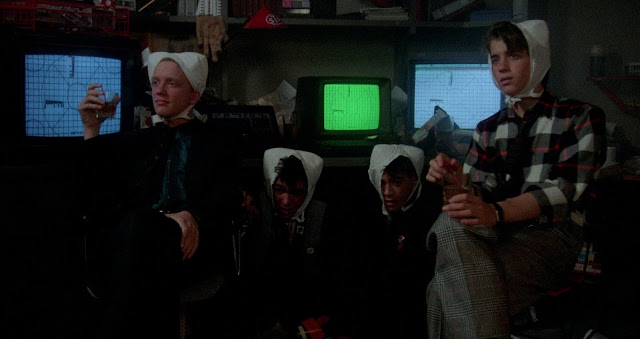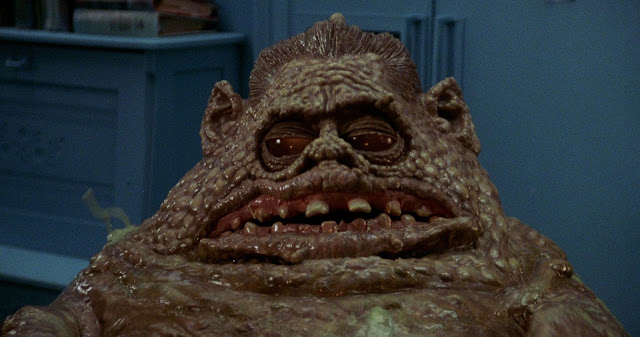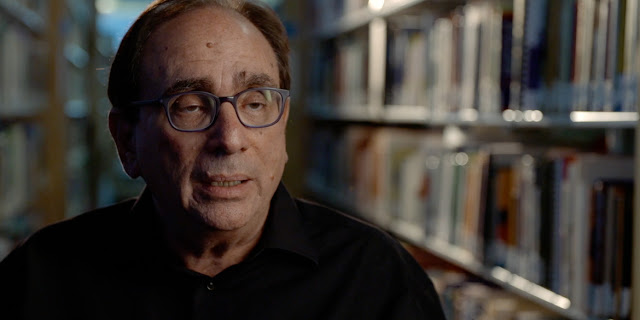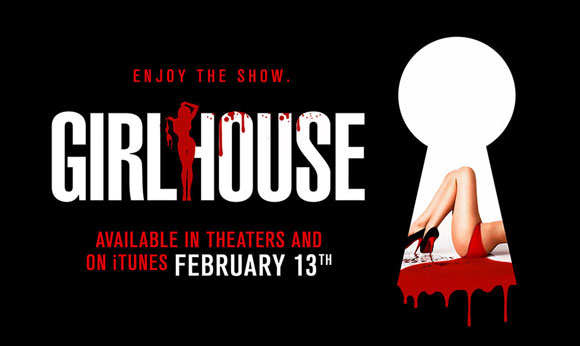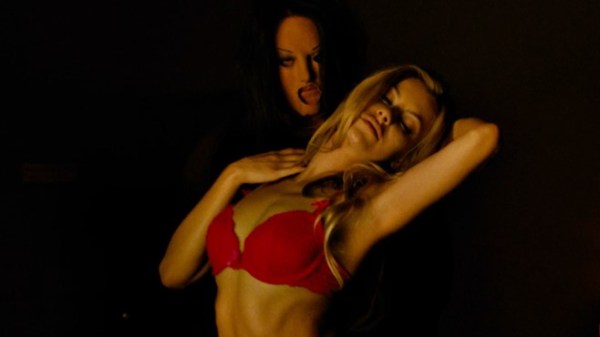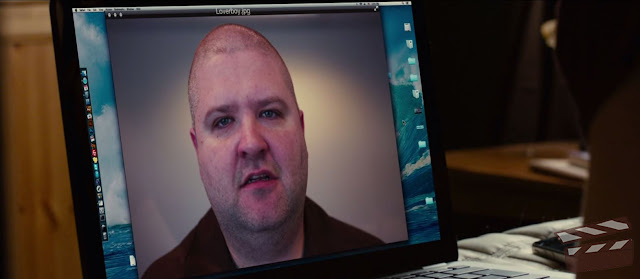
The best thing the film medium can offer you is surprise. Unfortunately, our ability to be surprised has been severely hampered by both our technology and our cynicism. In the old, old (old) days, ten-second flicker shows of "a crying baby" or "a sneezing man" comprised the medium. For a nickel apiece, you could peel back the tent flap at the World's Fair and step inside for your viewing of—in retrospect— completely mundane, everyday things, and you would be completely blown away by this marvel of technology called film. A hundred years later, two-hour films filled with mind-blowing special effects meticulously assembled by crews of thousands and filled to the brim with Hollywood's most revered and legendary talent can still be written off with the dreaded "worst movie ever." Perhaps the leaps and bounds in technology has directly led to this cynicism, to our spoiling as an audience with insurmountable expectations, or perhaps it's this heavy emphasis on promotion (internet film sites painstakingly offering every update on a film currently in production; trailers giving away every money shot; teaser trailers FOR trailers) that ruin it for us. In this age of lightning-fast social media updates, or websites designed solely to give away major spoilers from brand new films (seriously!), it's so hard anymore to feel like something has come out of nowhere to wallop you in the best way possible. A film can still be considered "good," even if it's formulaic; alternatively, such precedents can be so established that we need nothing more than to see the poorly Photoshopped poster or cover art featuring the floating head of the actor or actress (usually actor) well past their prime, and know we'll be skipping that one. From the highest extreme— isn’t it obvious the men and women in the capes and robot suits buzzing around the CGI sky are going to be victorious?—to the lowest—isn’t it obvious that the new Steven Seagal film that’s gone direct-to-video called Ultimate Carnage or Ultimate Destruction or Carnage of Destruction is going to be unwatchable?
Doesn’t it all just feel too safe and predictable anymore?
Doesn’t it all just feel too safe and predictable anymore?
Thankfully, despite our technology and our cynicism, films and filmmakers still have the ability to surprise; they will come from the unlikeliest of places, and will be made by the most unassuming of people.
And when that happens...
And when that happens...
Worst-case scenario: you’ll say, “That was better than I thought it would be.”
Best-case scenario: it will either create a new love, or rejuvenate a forgotten one, for this thing previously dismissed by the industry and previously unappreciated by the viewing audience. It takes this preexisting thing watered down by too much baggage and too many ill-advised intentions and looks at it from an entirely new and unexpected vantage point.
Christopher Nolan did it with Batman Begins. Rupert Wyatt did it with Rise of the Planet of the Apes.
In 2009, filmmaker John Hyams (interview here) did it for Universal Soldier, a sorta-hokey action flick from the early '90s.
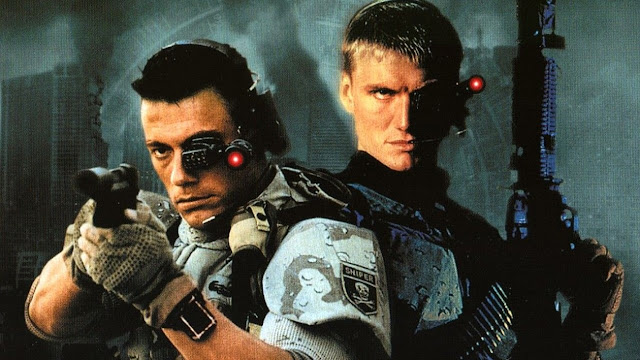
"God damn it the whole fucking platoon's dropping like flies! What the hell are you staring it? Do you have any idea what it's like out there? Do you? Well I'm fighting this thing man, it's like kick ass, or kiss ass, and I'm busting heads! It's the only way to win this fucking war."
Starring Jean-Claude Van Damme and Dolph Lundgren as Luc Deveraux and Andrew Scott, respectively, 1992’s Universal Soldier is a fun and unassuming little action film about two Vietnam War soldiers who died by each other’s hand and were later resurrected by a government program called "Universal Soldier," which experimented in making indestructible super-soldiers for the usual paranoid-America military purposes. As can be predicted, chaos ensued. Lives were taken. Van Damme stripped down to his nothings and said, “I just want to eat” (but not at the same time). This film essentially about the corpses of fallen soldiers reanimated into Terminator/Robocop-like zombified killing machines, though fun and certainly entertaining, didn’t have a whole lot to say about “fate” or “the self” or other themes that were explored in those two previously mentioned films by which Universal Soldier was inspired. But that’s okay. This was the early ‘90s, after all. Culturally, it had been eons since the 1970s, the last decade to really take the medium of film seriously as a means of dissecting and deconstructing our shortcomings as members of the human race, so not many filmmakers or studios were interested in adding such heavy themes into their films starring that guy from Rocky IV who said, “I must break you." Universal Soldier was a rock 'n' rollin' good time, but it didn't have shit to say about, really, anything. (The closing credits song is "Body Count's in the House" by the band Body Count, so....)
Made during that now-dead period when action films were allowed to be R-Rated, lighthearted, and knowingly silly, Universal Soldier more than satisfied the macho level of violence that action film fans required while also proving to be the most financially successful film of Van Damme’s career. Surprisingly directed by Roland Emmerich (The White House Explodes: The Movie), who would later achieve infamy for destroying the world several times in several films in larger-scale but less graphic ways, the filmmaker atypically injected his film with a certain level of grisly violence that he has seemingly been hesitant to revisit. (Perhaps that can be attributed to Universal Soldier being a Carolco release, a studio that hardly ever shied away from the red stuff.) Not to mention, Lundgren, probably (unfairly) the least respected actor among his action hero brethren, actually turns in a hell of a performance, chewing every piece of scenery with relish. "Now that's the spirit, soldier!" lives on because of the infectiously manic way he delivered it—it's since become his "I'll be back." Accepting the gimmicky approach of matching these two action film heavyweights against each other, the on-screen chemistry between our hero and villain was a large reason behind Universal Soldier's success. When the box-office failure of 2013's Escape Plan pervaded theaters, nearly every reviewer wrote off the film's concept of doubling up Stallone and Schwarzenegger as "twenty years too late." Personal opinion of Escape Plan's quality aside, they were right. The double-team of Van Damme and Lundgren, made during their respective primes and during a less-highbrow era of exciting popcorn cinema, might be the action-hero pairing—not just of its time, but of all time. (You read that right.)
Six years later, Universal Soldier 2: Brothers in Arms happened, followed closely by Universal Soldier 3: Unfinished Business, both of which were attempts by Canadian producers to launch a television series, and neither of which saw involvement from any of the cast or crew of the first film. For reasons unknown (likely having to do with the quality of the final product), a series did not happen, so the footage was repurposed into a pair of direct-to-video features.
They feature Gary Busey and Burt Reynolds. Let's move on.

"When I was a machine, I yearned to be a man. Now I'm better than both. The created has become the creator."
1999's Universal Soldier: The Return hailed “the return” of Van Damme to his most profitable character, but not only is it the worst film of Van Damme’s career (it boasts a healthy 5% on Rotten Tomatoes), it is an absolutely confused and unabashedly stupid sequel that attempts to directly continue the events of the first film while somehow bungling every attempt at continuity. Luc Deveraux, whom one could argue was left existentially ruined at the conclusion of Universal Soldier, is now a single father (super-semen?) who is happily and unrealistically working alongside the people responsible for the UniSol program, and with a smile so big one might expect him to slip on a clown suit and make balloon animals for the children. There's even a scene where someone at UniSol headquarters asks him if he's ever going to get back in the field (aka become a mindless, government-controlled, undead killing machine); in response, Luc flashes a giant smile and says, "Been there, done that!"
Does he seem at all haunted by once being a resurrected corpse and manipulated for the sole reason of total bodily destruction?
Not at all.
Does he hold any kind of grudge against the government program that dared to play God, and is he perhaps working covertly in hopes of exposing the program for the evil and soulless beings that they are?
No, he doesn’t, and no, he isn’t.
Is he…still a corpse? Or is he just alive again for some reason?
I have no idea.
Is Bill Goldberg really in this?
And how.

The Return throws out everything that made the first film a success, sacrificing thrills and chills for really cheap humor, terrible special effects, and Michael Jai White (who, admittedly, is a total bad ass). It also has the dubious honor of having been Van Damme’s last widely released theatrical feature film (until The Expendables 2 thirteen years later), as well as one of his worst performing returns at the box office, and while those would be embarrassing on their own, that it’s a sequel to one of his best performing ones accentuates The Return's failure. His decision to return to his most profitable character was likely spurred by a string of failures at the box office that spanned six consecutive releases, beginning with Street Fighter and ending with the obnoxious Knock Off.
The Universal Soldier name was all but dead. Up to this point, this four-film series had arguably only one strong entry, and even that devotion was predicated on a prerequisite for appreciating cheesy tongue-in-cheek action films that got a lot of mileage from Van Damme removing his clothes and cutting to a supporting character's :O face.
If this franchise were to continue, something new had to happen. Something drastic. Something that satisfied the old fans while creating a generation of new ones who'd grown up in the age of The Matrix and The Dark Knight and who needed something more than just quips and ear necklaces.
Someone new came along and did just that.
His name is John Hyams.
His name is John Hyams.
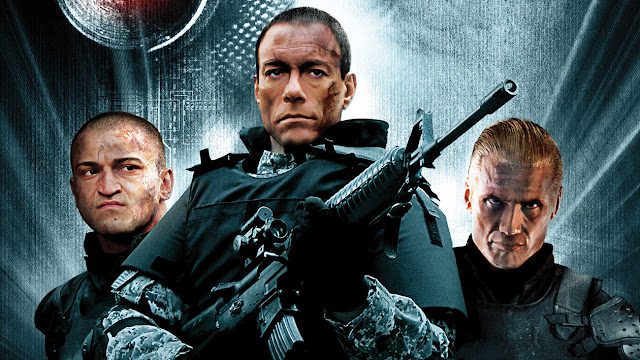
"Can I ask you a question...? Do you often contemplate the complexities of life? Are you a punctual and reliable person? Do you know how to put every minute of your time to good use? Are you rested? Are you happy? Do you often think about humankind and its destiny? ... Who am I?"
Universal Soldier: Regeneration happened ten years after The Return, and it was due to a combination of franchise fatigue and the less-than-stellar reputations of Van Damme and Lundgren, both having spent the last decade wallowing in direct-to-video obscurity, that the red carpet was not rolled out for this series' rebirth. Regeneration did not receive immense coverage on the Internet, and its existence was not mentioned in the pages of entertainment magazines. Unless you were keeping a purposeful eye on the careers of its leading men, its release saw very little fanfare, and outside of a surprise film festival premiere, very few people knew about the imminent return of Universal Soldier.
To viewers who would have been even remotely interested, Regeneration was already battling too many prejudices right out of the gate: Wasn’t the previous sequel really bad? Wasn’t the character of Andrew Scott literally ripped to shreds during the first film’s finale? Won’t Van Damme and Dolph Lundgren do any film right now for a warm meal? (The Internet is a mean place.)
In many ways, Universal Soldier: Regeneration is a revelation. Its subtitle is not just a plot descriptor but a proclamation. It’s a declarative. It’s “Motherfuckers, Universal Soldier is back and better than ever.”
Eschewing everything in the Universal Soldier “series” and directly following the events of the original film, Regeneration is one of those ideas doomed to fail, but never does. Such a radical departure could have only resulted in one of two potential outcomes: a miraculous achievement or a massive failure. They say that the greatest risk reaps the greatest reward. In the case of Regeneration, they were right.
A band of Russian militants have kidnapped the children of the Ukrainian prime minster and seized control of the former Chernobyl nuclear power plant, threatening to blow it to hell and spread radiation all across the land, should the Ukrainian government refuse to release the terrorists' captive comrades. Bolstering their brashness is their having stolen American UniSol technology, which includes the next generation UniSol (NGU) played by UFC fighter Andrei “The Pit Bull” Arlovski. After the U.S. responds by sending in their own team of first-generation UniSols, as well as a team of regular, honest-to-Gosh humans—all of whom are decimated by the NGU—they have no choice but to turn to one man: Luc Deveraux, a former and decommissioned UniSol.
For years following the incidents of the first film, Deveraux has been participating in therapy sessions with his psychologist, Dr. Sandra Fleming (Emily Joyce), the only person he trusts, in an attempt to regain his memories and rebuild his humanity. His forced involvement with the UniSol program has left him broken, sad, haunted, and alone. You can see it in his face. But it's also left him with an uncontrollable rage—Hyams describes him as "a wild dog"—and he attacks strangers in the middle of a restaurant simply because he doesn't like the way they're approaching him. Clearly there's a long way to go before Deveraux is fully rehabilitated, but he's making progress. Like an addict in recovery, he wants to change; otherwise, he knows he's doomed.
That all stops once he embraces his inner universal soldier, unlocking the cage of the wild dog and letting it run rampant, leaving behind a majestic trail of gunshots, stab wounds, and hollowed-out heads.
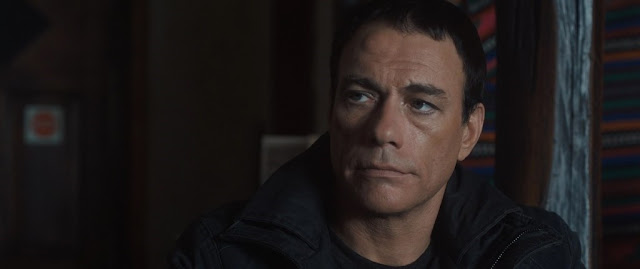
For those familiar only with the original Universal Soldier, the first big surprise of Regeneration is how serious it's taking, well, everything. While the original film was a violent and thrilling adventure, it also boasted a healthy amount of humor, which it would seem Roland Emmerich is incapable of avoiding. Deveraux, Scott, and the whole UniSol program may have been ported over into the new millennium, but the cheeky humor certainly was not. Despite only one scene intended as a joke (and a nice nod to Terminator 2), the tone is dark and somber, and contains weighty themes about humanity. The tone is so vastly different that those looking for a fun action film complete with bad puns and cheesy violence will be in unwelcome territory. It feels as if Hyams watched all the previous Universal Soldier films and said, “This is a good concept for a film, but why are all of you fucking around?” and made something somber and bleak but without becoming too self-indulgent or pretentious. To state something painfully obvious: this is a film. It feels like it were made by a cast and crew of people who were trying. This isn't the result of a typical, direct-to-video, "let's shoot a few scenes before lunch," type of production starring Steve Austin or Cuba Gooding Jr. Though on its surface it has all the makings of being such a production, it never feels cheap or disingenuous. It feels like something you'd go see in a theater, and unlike paying for a ticket for something like The Expendables 3, there'd be no real feeling of shame in doing so.
Regeneration, despite being the fourth sequel in a Van Damme-centric action franchise that has gone direct-to-video, actually received its fair share of positive notices from both critics and audiences, and that is a relief. The former appreciated Hyam's skills behind the camera and the latter appreciated these characters' wild reinterpretations, the bad-ass action sequences, and the triumphant return of their two action heroes from yesteryear. Having said that, the focus is not entirely on our o.g. soldiers. Much of the focus is spent on events occurring within the confines of the UniSol program, the ground-troops tasked with trying to overthrow the terrorists who have seized Chernobyl, the internal struggle between these terrorists, and surprisingly, the “villain” of Regeneration, the NGU (Arlovski). For much of the film, we witness the decimation of U.S. soldiers—universal and other— at his hands and through his eyes. He is the Jason Voorhees of Hyams' blue-tinted industrial world who humiliates and destroys line after line of soldiers sent in by their superiors to hopefully quell the conflict and subdue the terrorists. Though we do catch intermittent glances of Van Damme during the first half, his role does not become prominent until nearly the beginning of the third act, more specifically at the 40-minute mark, in which he sheds the humanity he’s been trying to rebuild over the last however many years. Lundgren, too, has limited screen time, even less than Van Damme, but the scenes they do share are bombastic, and Dolph's death scene is haunting in both its graphic, clever brutality as well as its ambiguity. His first on-screen appearance is nearly ceremonial, harking back to the imagery that has long become associated with Universal Soldier: bodies stuffed into futuristic coffin-pods, packed with ice, the fog of which billows over their glaring eyes when the lid is peeled back.
Van Damme, too, is surprising with his new approach to Deveraux. Whereas in the first he was tasked with blank-slate expressions and occasional mugging for the camera, here, he is utterly haunted and he wears it across his face. The once-troubled actor, enjoying a career resurgence following the one-two punch of this film and the titular JCVD (and, weirdly, that "epic split" commercial for Volvo), has been the one making the most interesting choices among his action-hero direct-to-video colleagues. And it begins in Regeneration, where Deveraux is dealing with the loss of his humanity, his unpredictable rage, and his profound sadness. Van Damme wears his age and battered life just as obviously as Deveraux wears his pain. He offers an extremely melancholy performance, one where it feels he’s almost constantly on the verge of tears. They say actors lose their stuff over time, choosing to sleepwalk through their later roles, but in the case of Jean-Claude Van Damme, he's stopped being a performer and started being an actor. (Those who doubt his thespian abilities have not seen JCVD, plain and simple.)
Another surprise? Regeneration is a thinking person’s film. It would be so easy to write off, essentially, this Part Four as another cash-grab entry, but enjoying the full effect of the film’s intention requires you to sit down and pay attention to everything; every piece of dialogue and every bit of information is vital to you understanding who is who, what is what, and what it is exactly you’re seeing unfold. No one will flat-out tell you. You’re given the pieces; it’s up to you to put the puzzle together.

Regeneration is dark, brooding, brutal, and thematically heavy. It’s about humanity—the lack thereof, how to find it, and what happens when you lose it. But don’t let that deter you, because it’s also a kick-ass action film that doesn’t let all those weighty issues get in the way of men pulverizing other men. Regeneration wants you to earn the full effect of its story, but dear god, it also wants to satisfy the carnage for which you’re jonesing. The action on display is revelatory. It starts big, ends bigger, and everything in between is an action fan's wet dream. It is unrelenting, well-staged, and best of all, realistic. Also refreshing is you see everything. Forget the Greengrass shaky cam and CGI enhancements. It is old school filmmaking from a filmmaker with an old school mentality. The camera shoots and the action unfolds before it. Nothing is designed to obscure; instead, it’s designed to capture the utter animalistic madness unfolding. The final fight scene between Van Damme’s Deveraux and Lundgren’s Scott, where they throw each other through walls and windows or down whole flights of stairs is one of the greatest action sequences in film—and that’s not hyperbole. Your jaw will drop once their fight scene commences, and it won’t close again until well after we say goodbye to one of them...for a second time.
Continuing with this old school mentality, the musical score by Michael Krassner and Kris Hill is appropriately John Carpenter. The ominous and brooding synth is a nice callback to an earlier era that preferred content and mood over ridiculous set-pieces complemented by bombastic Hans Zimmer. And because Hyams opens Regeneration with an extended, unbroken Steadicam shot, much how Carpenter opened Halloween, the musical design is obviously not just a happy accident. Everything has been designed for a specific reason.
Regeneration is the film that action fans deserved and the Universal Soldier series needed. It was a sequel, a reboot, a retcon, and a resurrection. And it's all thanks to John Hyams, who had an ambitious plan. It was one that required skill, patience, and the resources at his disposal.
Part one of this plan: legitimizing the Universal Soldier series, getting it back to respectability and perhaps bankability, and establishing a sturdy base off which future ideas could be built.
Part two: going off the deep-end and creating, quite possibly, the most unique action film…ever.
Enter 2012's Universal Soldier: Day of Reckoning.

"My brothers, let's not forget the moment of sickness. Our thoughts interrupted by unfamiliar voices. We were merely arms and legs moving to the directive of another mind. But in an instant, the veil was lifted. Today, brothers, I stand you before you declaring: your minds are now your own."
With Day of Reckoning, Hyams takes things to the next level. It’s the natural next step following a film about humanity: it’s about identity. It’s about you—knowing who you are, your place in the world, and why.
The film opens with an impressive use of first-person point of view, during which our lead, John (burgeoning action star Scott Adkins of the Undisputed series and The Expendables 2), is awakened by his daughter telling him here are monsters in the kitchen. He gets up to check and sees there really are monsters in the kitchen: a group of ski-masked men led by a very bald Luc Deveraux (a returning Jean-Claude Van Damme). Before we can make sense of what's happening, Deveraux executes both John’s wife and daughter right in front of him, but only after one of Deveraux’s cronies beats John into a bloody mess with a crow bar. A very interesting turn of events, in that Deveraux, who has been the hero in every past installment, is now evidently the villain.
After awakening from his nine-month coma, John begins to pick up the pieces, all while dealing with a heavy dose of amnesia. A dead body leads him to a strip club, which leads him to a dancer named Fantasia, aka Sarah (Mariah Bonner), who seems to recognize him but won’t immediately say how or why. He also crosses paths with "the plumber," the also-returning Andrei Arlovski, who lets his fire axe do all the talking. On the surface, it would seem that "the plumber" is John's foe to be defeated, but this is Day of Reckoning, people—you simply have no idea what you're in for.
John's drive to solve the mystery of the motive behind his family's execution puts him on the path to an acid-burned, scar-faced mafia boss, all while being haunted by strobe-lit visions of Deveraux that play out behind his eyes. It all eventually leads to a rebellious horde of UniSols, free from the constraints of the government that had controlled them for so long, now living in an off-the-grid bunker with Deveraux acting as their leader. This underground movement (figuratively and literally), called the UniSol Church of Eventualism, has been systematically deprogramming and providing shelter and guidance (in some ways, anyway) for UniSols who found themselves free, but without a home or identity. It's through this rehabilitation of sorts that Deveraux becomes a spiritual father to all of these wayward children. Though he's not a "father" in the paternal sense—he encourages the soldiers to engage in battles to the death in order to cull the weaker populations of his growing army—there is a sense of dependency that these UniSols have on him. It's because of this that it's not quite clear why Deveraux wants John dead. Easier to understand would be why John wants Deveraux even deader...but it's the obviousness of his motivations that should have you questioning their veracity.
What Hyams has done with this entry is beyond praise or description. Nothing he does and not a single idea he tries should work, but they do, over and over. And he goes about it in the smartest possible way. To him, each entry he makes is not about continuing the mythology in the same way that another popular action franchise, the Bourne series, executed (even though there are echoes of that series here). It’s not about examining the beginning of the UniSol program, nor about its nefarious creators. Instead, it’s about what being a UniSol has done to each and every soldier. It’s about how they are different, barely human. But really, while the soldiers and their abilities are incredibly important, they are not the driving focus. Day of Reckoning is, perhaps, the most intimate film in the franchise in that it's only about John, and the series of clues he finds during his journey. It’s about answering the question: what would you do if you found yourself finally freed from your oppressor, but aware you could never live among normal society? And more: what if everything you thought you knew was a lie? What if you were a lie?
It’s amazing to see Hyams marry the UniSol concept to so many different genre staples and continuously create something entirely new. While Regeneration is a straight-up action thriller with sci-fi elements, it successfully elevated the type of action we had seen previously in Emmerich's original. The fighting in Regeneration became very instinctual and unfeeling; it became graceful despite a complete lack of grace—"the ground and pound," as Hyams called it. It was brute force, though methodically choreographed. While Day of Reckoning is still very much an action film that enthusiastically continues that kind of gritty, almost robotic fighting style, it also transcends the limitations of just being an action/sci-fi film and explores elements of psychological and physical horror, the 1970s-era paranoid thriller, and film noir. (You know you’re living in a noir landscape when a book of matches for a seedy club is found at a crime scene and leads to the next phase of the mystery.) Hyams wears his influences on his sleeve, and there are many, with homages to Kubrick's A Clockwork Orange and The Shining, Blade Runner, and Apocalypse Now, all existing within the very gritty shadow of The Manchurian Candidate.
Day of Reckoning is also incredibly violent. The fight scenes are awe-inspiring. Heads explode like Gallagher's watermelons. Hookers catch shotgun slugs in the chest and go flying across the room. Toes and fingers fly off the blade of fire axes. The sporting goods store scene involving two bloody men and a baseball bat is a showstopper; expertly staged by fight choreographer Larnell Stovall, it shows performers Adkins and Arlovski at the absolute top of their game, and their characters at the height of their capabilities. It also contains one hell of a brutal punctuation mark. Last, let's not forget the finale where John storms the underground bunker, where he quite possibly lays to waste more bodies than the T-800 in The Terminator's police station shootout. It's another Hyams-esque sequence whose cuts are cleverly hidden, therefore offering the appearance that it's all part of one extended, blood-soaked rampage of beautiful carnage.
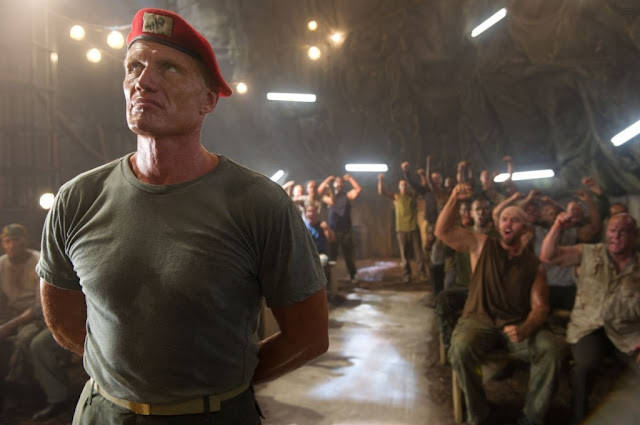
If Regeneration’s change in tone was disconcerting to some fans, then Day of Reckoning’s change in storytelling device and point of view is going to send those same fans scattering to the wind. Day of Reckoning is so far removed from the first Universal Soldier in nearly every way, except for the presence of Van Damme and Lundgren, that it should have naturally shed anything that remotely felt like it belonged to a concept from a different era. But somehow, Hyams makes it feel like it not only belongs, but that it's a natural progression in the Universal Soldier story. Lesser filmmakers would resort to having Luc Deveraux go on mission after mission and becoming less and less surprised to see that Andrew Scott is there inexplicably waiting for him. To ground this series in reality, it was an organic choice for the hero to have suffered emotional scarring after his first foray as a UniSol (Regeneration), and it's natural for that hero to deny this manufactured fabrication that his life has become and descend into the underground, slowly amassing an army to ultimately rebel and perhaps overthrow this government and their awful Frankenstein program. But is that hero still capable of what would traditionally be considered heroic acts? Because what Day of Reckoning also posits—another question in the litany of questions it's already posed—is this: does the man who frees you from your shackles then inherit the role of your master? Have these decommissioned soldiers left one tyrannical government and traded it for one fanatical leader? And to flip the question around again: what's the worth of a handful of soldiers when rebelling against the very government that created them? What, ultimately, is the bigger evil?
Another aspect that separates Day of Reckoning from the previous entry is the welcome return of the humor...but not the kind of humor found in Emmerich's original. If Regeneration distanced itself from the 1992 film by dropping the humor entirely, then Day of Reckoning distanced itself equally from both of those entries by re-embracing the humor but changing the way it's packaged. The humor on display here is vile—the black, gallows kind. Moments of "levity" are spurred from an old madam being shot in the head, her brains splattering the wall behind her, her dead body remaining upright and unmoving, her face wearing a permanent look of shock and confusion. "Comedy" derives from a man paying a prostitute to hammer nails into his hand as a means for sexual pleasure while she looks totally disgusted and horrified to be doing so. Andrew Scott gets a bowie knife all the way through his hand and his only response is to laugh.
Day of Reckoning, much like other unique, outside-the-box films, appeared on both “best of” and “worst of” end-of-year critics’ lists in 2012, which I can understand because what's essentially Universal Soldier 6 is a surreal, psychedelic, Lynchian mind-fuck that's hilariously removed from the original. It's an homage to every significant era of filmmaking, to every disparate genre. (It just also happens to feature a lot of punching.) And the homage continues with the return of Krassner and Co. turning in another Carpenter-ish score, only this one is more tonally foreboding, relying less on synthesizer and more on traditional instrumentation to set the mood. At some points, the composers seem to be channeling Penderecki, dancing on that line between unorthodox composition and flat-out experimentation. Since Hyams is experimenting gleefully with a Kubrick aesthetic, the musical homage is right at home.
In many ways, Day of Reckoning is a natural sequel to Regeneration, but in many ways, it’s not. The presence of Van Damme and Lungdren assures some attempt at series continuity, but to see that Van Damme has gone from heroic lead to villainous supporting role? To see that his former foe now appears to be a disciple? A sort-of deranged and sex-seeking henchman? It's not just a ballsy development, but downright unheard of. That just doesn’t happen.
That is, of course, unless not everything is what it seems...
In Regeneration, Deveraux is faced with a difficult choice: deny the humanity for which he yearns, embrace the UniSol life, and save the day. Once Deveraux makes that choice, he's become the hero; he saves the day because those were his orders. There is no catharsis for him. He is not facing the demon inside him by embracing his past. He is not trying to right a wrong that has left him haunted, because he's done nothing wrong. Instead, he was kidnapped from his home and all but forced to agree. But once the mission was complete, he had no further orders. To borrow a phrase used repeatedly in Day of Reckoning, his mind became his own. And he chose to disappear.
So at the end of Day of Reckoning, when John and Deveraux finally meet, your loyalties are conflicted. Obviously it's natural to root for John because he’s the one who’s been victimized—he's been your immediate sympathetic lead, your protagonist, the one you want to see achieve emotional retribution—but you also root for Deveraux because he’s been that same hero twice before. You remember his history in the mythology, and you remember that he is/was a victim just like John. By now the cat is out of the bag. You know why it appears that Deveraux slaughtered John's family. You know why he's living underground, playing foster father to a horde of miscreant mutants. Day of Reckoning takes that black-and-white idea of protagonist vs. antagonist and turns it on its ear. Forget fifty shades of gray—try billions.

There's a reason why Scott Adkins' name is being bandied about as the next action superstar. Though not quite a household name, his role as Yuri Boyka in the Undisputed series sequels, which are far superior to that Walter Hill prison film about which you've already forgotten, were excellent showcases for both his techniques as a fighter and his range as an actor. With Day of Reckoning, Adkins has now managed to appear in four action franchises (including the underrated Ninja series) while breaking dozens of faces without breaking a sweat. A story about perseverance if there ever was one, Adkins, in his pre-fame youth, used to write fan letters to his idol, Jean-Claude Van Damme, telling him about his aspirations in life, and about how much the actor/martial artist had inspired him. All these years later, Adkins and Van Damme have worked together in no less than four films—all of them solidly entertaining—with possibly more to come.
Much has been said about the limited on-screen involvement of the very little-used Van Damme, and the seldom-used Dolph Lundgren, who returns without explanation, given his previous fate in Regeneration (although we really already know how/why). They only appear for a few minutes, Van Damme to do his best Colonel Kurtz and give commands, and Lundgren to give rousing speeches and smash a head or two. They don't even share a fight scene as they did in previous installments (including their breathtaking, wall-smashing, multi-floor brawl from Regeneration). In fact, they share no scenes whatsoever. Because they’re on the same side now; it's a different dynamic. Though both of them appear often enough that it doesn’t feel like a total disappointment, make no mistake: Scott Adkins is your lead soldier.
Director/co-writer Hyams gleefully makes these films for a very select group of people. He certainly did not make Day of Reckoning for the masses, as its events are too inspired by what has come before, and simultaneously, it wears its very unlikely inspirations proudly on its sleeve. (The Big Sleep, Angel Heart, Chinatown, to name some more.) Thankfully, he's willing to remain in this world and create new adventures for the very non-mainstream demographic that appreciates what he’s doing. While audiences could sit down and recognize the quality and daring of Regeneration, not many people would be willing to lose themselves in this world and lend themselves to the kinds of risks that Hyams is taking in bringing new ideas to the table and experimenting in the way that he so far has. It's essential that audiences not only remain open to these new ideas, but that they shed their unfair assumptions about what kind of film they think they'll be getting simply because it has Van Damme and Lundgren on the poster. Though these men still have their fair share of fans, it wouldn't be incorrect or unfair to suggest that their association suggests a certain kind of film—one made to occupy a video store shelf or Netflix upload and inspire a few rentals before disappearing into the oblivion of B-movie history. Van Damme and Lundgren have a lot of baggage in the same way other action stars like Schwarzenegger and Chuck Norris do: people love their films because most of them are near-cartoons. People love Commando because it’s fun and manly, not because it’s “good,” and certainly not because it's taking anything seriously. So when you're flipping through Netflix and you read one or both of these titles, you'll recall the first Universal Soldier and you may think, “Oh, isn’t that Van Damme?” Already, some credibility will be lost, because that's the nature of cynicism. Though it may be difficult to name three or so titles from Van Damme's career during the phase where he disappeared, you'll have no trouble remembering that none of them played at the multiplex, so how good could they be? But to then go on and read the words “sequel” and “direct to video,” well…forget it.
And that's the problem. That's the uphill battle that daring, little-known films like Regeneration and Day of Reckoning are facing: such preconceived notions and the cynicism that comes with them have the unfortunate power to repel much of that potential new audience who aren’t willing to open themselves up to the possibility that such ideas could really pay off.
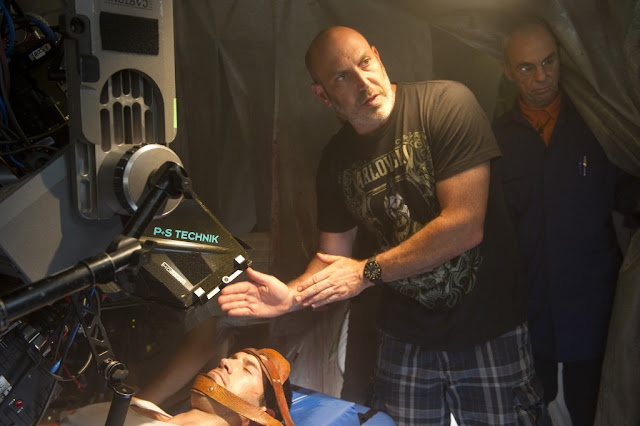
John Hyams deserves great things, to explode onto the A-list scene and become a name as weighty as James Cameron or John McTiernan. And even though we do not need further entries in the following properties, he's proved that he's worthy of taking on Die Hard or The Terminator and infusing it with his sensibility. He's worthy of tackling something with a high budget, and with access to the kinds of resources that would enhance his imagination and his skills as a director.
But selfishly, this writer wants Hyams to remain under the radar, to keep making Universal Soldier films for the fans who genuinely want to see what else he has up his sleeve. And we just may get our wish: Hyams is already thinking about the future. He’s very keen on doing another.
As Deveraux says in the finale of Day of Reckoning, "there is no end."
Here's hoping he's right.




